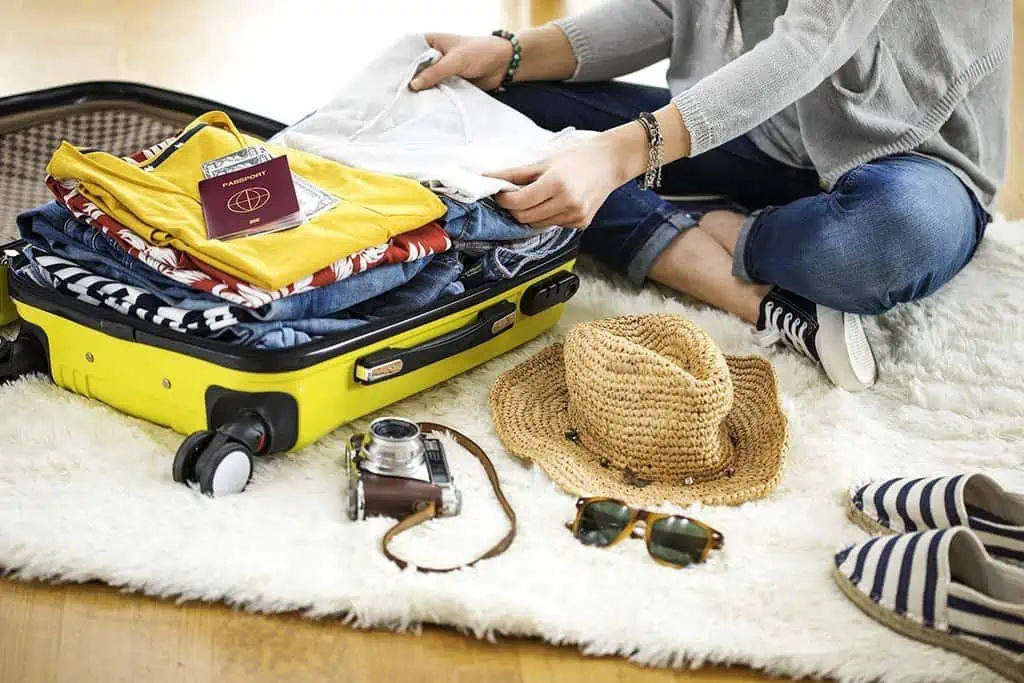Packing Essentials to Relocate to Canada in 2024. Are you planning to move to Canada in 2024? Make sure you are well-prepared by considering these packing essentials. Gather your important documents, pack clothing suitable for all seasons, and don’t forget about voltage differences for your electronics. Also, remember to bring enough medications and consider financial considerations.
Deciding which household items to bring can be challenging, so do thorough research on your new location. Start your new chapter in Canada with confidence and ease.
Overview: Packing Essentials to Relocate to Canada in 2024.
So, you’ve decided to take the plunge and relocate to Canada in 2024! Congratulations! This exciting new chapter awaits you, but amidst the whirlwind of emotions, one crucial task looms large: packing. Fear not, intrepid adventurer, for this comprehensive guide will equip you with the knowledge to conquer your Canadian relocation packing like a pro.
Relocating to a new country can be an exciting yet daunting experience, especially when it comes to packing. If you are planning to move to Canada in 2024, it is essential to be well-prepared and organized.
Before you proceed, check this article Top 12 In-demand Skills to Boost Your Career in 2024.
So without further ado, let’s get to business.
Packing Essentials to Relocate to Canada.

1. Important Documents and Paperwork
Let’s start with the non-negotiables. Prioritize gathering all your important documents, such as passports, visas, birth certificates, marriage certificates, educational certificates, and any other relevant identification papers. It is advisable to keep these documents in a secure folder or a waterproof bag to prevent any damage during the journey.
These are the essential documents you must bring with you to Canada:
- Passport and travel documents: These are crucial for entry into Canada.
- Immigration documents: This will depend on your specific immigration program, but generally includes your visa or confirmation of permanent residency.
- Proof of financial support: You’ll need to show that you have enough funds to support yourself while settling in Canada.
- Medical records: Bring copies of your medical history, including vaccination records and prescriptions for any medications you take regularly.
- Educational certificates and transcripts: These may be required for work or study purposes.
- Birth certificates and marriage certificates: These may be needed for opening bank accounts or applying for government services.
2. Clothing for All Seasons
Canada is known for its diverse climate, so you will need to pack for all seasons.
Include warm winter gear, such as heavy coats, boots, scarves, and gloves, if you are moving to a colder region. Don’t forget to pack lightweight clothing for the summer months as well. Layering options will come in handy to adapt to the changing weather conditions.
Here’s a breakdown:
- Winter: Pack warm layers, including a parka, snow boots, a hat, and gloves. Temperatures can dip below -20°C in some parts of the country, so be prepared for the cold!
- Spring and fall: These are transitional seasons, so pack layers you can easily add or remove. A light jacket, raincoat, and comfortable shoes are essential.
- Summer: Enjoy the warm weather with shorts, t-shirts, and sandals. However, don’t forget to pack a sweater or light jacket for evenings, as temperatures can drop suddenly.
Read also: Recommendation Letter for Scholarships: A Guide and Examples.
3. Electronics and Appliances
When relocating to Canada, it is essential to consider the voltage differences in electrical outlets. If your electronics and appliances are not compatible with the Canadian voltage (120V), you may need to purchase voltage converters or adapters. It is also recommended to pack universal power adapters to ensure your devices can be charged and used in Canada.
4. Medications and Health Supplies
If you have any ongoing medical conditions or require specific medications, make sure to pack an ample supply to last until you can find a local healthcare provider in Canada. Additionally, include a first aid kit with essential supplies, such as bandages, pain relievers, and any other personal health items you may require.
Be prepared for minor ailments and accidents with a well-stocked kit.
5. Financial Considerations
Before your move, it is important to inform your bank and credit card companies about your relocation to Canada. This will help prevent any issues with accessing your funds or using your cards abroad. Consider opening a Canadian bank account to facilitate financial transactions once you arrive.
Related: 20 Most In-demand Skilled Trades in Ontario.
6. Household Items
Deciding which household items to bring with you can be a challenging task. Consider the size and weight of each item, as well as the cost of shipping or transportation. It may be more cost-effective to sell or donate larger furniture items and purchase new ones in Canada. However, sentimental items and personal belongings should be included in your packing list.
You won’t need to bring everything from your current home, but there are some essential household items you’ll want to pack:
- Bedding: Pack a comforter, sheets, and pillows for your new bed.
- Kitchenware: Pack a basic set of pots, pans, utensils, plates, and cups. You can always buy more once you’re settled in.
- Towels: Pack bath towels, hand towels, and dish towels.
- Basic toiletries: Pack shampoo, conditioner, soap, toothpaste, and other essentials.
- Electronics: Pack your laptop, phone, chargers, and any other electronics you use daily.
7. Language Resources
If English or French is not your first language, it is advisable to pack language resources to help you communicate effectively in Canada. This could include dictionaries, phrasebooks, or language-learning apps to assist you in adapting to the new linguistic environment.
8. Research Your New Location
Before finalizing your packing list, conduct thorough research on your new Canadian location. Consider the local customs, lifestyle, and availability of certain items. This will help you make informed decisions about what to bring and what to leave behind.
Bonus Packing Hacks: Pro Tips for a Smooth Move

- Label Everything: Clearly label your boxes with their contents and destination room to avoid unpacking chaos. This will make it easier to find what you need when you arrive in Canada.
- Utilize Space Saviours: Vacuum bags and packing cubes can compress your belongings and maximize space in your luggage.
- Research duty and tax regulations: There are limits on the value of goods you can bring into Canada duty-free. Be sure to research the rules before you pack.
- Ship Bulky Items: Consider shipping larger items like furniture or appliances in advance to avoid hefty baggage fees. It may be cheaper to ship them to Canada than to try to bring them with you on the plane.
- Downsize before you pack: Get rid of anything you don’t use or need anymore. This will save you space and money on shipping.
- Download Essential Apps: Research and download helpful apps for navigating your new city, finding accommodation, and connecting with locals.
P.S. Don’t forget to check out the official Canada Border Services Agency website for detailed information on what you can and cannot bring into the country.
Conclusion: Packing Essentials to Relocate to Canada in 2024.
Relocating to Canada in 2024 requires careful planning and organization, especially when it comes to packing. By prioritizing important documents, considering the climate, voltage differences, and healthcare needs, and doing thorough research on your new location, you can ensure a smooth and successful transition to your new home. Remember, being well-prepared will help you start your new chapter in Canada with confidence and ease.
Bon voyage and good luck on your Canadian adventure!
We hope this blog post has been helpful. If you have any questions, please feel free to leave a comment below.
Additional Resources:
- Canadian government website: https://www.canada.ca/en/services/immigration-citizenship.html
- Canada Border Services Agency: https://travel.gc.ca/returning/customs/what-you-can-bring-home-to-canada?wbdisable=true
- Moving2Canada: https://moving2canada.com/
- VisaPlace: https://www.visaplace.com/
- Welcome Centre Immigrant Services: https://www.welcomecentre.ca/
- SecureMyScholarship: https://www.securemyscholarship.com/blog/packing-list-for-international-students-to-canada
- Canada Border Services Agency: https://travel.gc.ca/returning/customs/what-you-can-bring-home-to-canada?wbdisable=true





